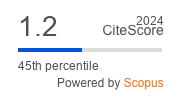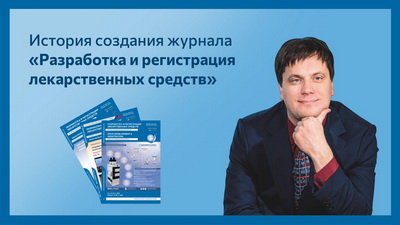Development of Retraining Systems for the Implementation of the Pharmaceutical Quality System at Pharmaceutical Production Enterprises of the EAEU Countries
https://doi.org/10.33380/2305-2066-2021-10-1-130-135
Abstract
Introduction. The publication discusses the state and problems of personnel retraining in the implementation of the pharmaceutical quality system at pharmaceutical enter-prises of the Eurasian Union (EU) countries.
Aim. The aim of the study is to comprehensively study the state and problems of retraining of personnel in the implementation of the pharmaceutical quality system at the enterprises of the production of medicines in the EU countries, and the development, based on its results, of scientifically grounded recommendations for the development of appropriate personnel retraining systems.
Materials and methods. The research methodology is based on a comprehensive analysis of scientific literature of foreign and domestic authors on pharmaceutical quality systems and good manufacturing practices, risk management in pharmaceutical industries and personnel in the implementation of FQS, aspects of personnel training and retraining.
Results and discussion. It has been proven that retraining of personnel is an important factor in promoting the introduction of FQS in pharmaceutical industries. On the example of the companies Akrikhin JSC and OZON Pharmaceuticals, aspects of advanced technologies for the development of retraining systems for production personnel in the implementation of FQS are considered. Based on the synthesis of theory and practice, practical recommendations have been prepared for the implementation and development of targeted integrated systems for retraining personnel in the context of comprehensive assistance in the implementation of FQS in pharmaceutical industries at enterprises in the countries of the Eurasian Union.
Conclusion. The key role of systematic and high-quality retraining of personnel in the context of comprehensive assistance to the implementation of FQS in pharmaceutical and biopharmaceutical industries at enterprises in the EU countries was confirmed. Despite the numerous problems and contradictions that determine the low level of development of the relevant personnel retraining systems, meanwhile, when implementing a set of optimization measures, such systems can successfully function and provide the desired effect, as evidenced by the studied best practices in promoting the implementation of FQS at certain leading enterprises of the pharmaceutical industry. The recommendations presented by the authors based on the results of the study are comprehensively focused on practical implementation in order to steadily improve the theory and practice of retraining of pharmaceutical production personnel in the context of FQS implementation.Keywords
About the Authors
V. A. SmirnovRussian Federation
Vladimir A. Smirnov
6, Lavrov lane, Moscow, 109044
V. V. Goryachkin
Russian Federation
Vyacheslav V. Goryachkin
6, Lavrov lane, Moscow, 109044
V. N. Shestakov
Russian Federation
Vladislav N. Shestakov
6, Lavrov lane, Moscow, 109044
R. A. Abramovich
Russian Federation
Rimma A. Abramovich
6, Mikluho-Maklaya str., Moscow, 117198
References
1. Eurasian Economic Union. Available at: http://www.eaeunion.org. (In Russ.).
2. Chaudhari V., Yadav, V., Verma P., Singh A.A. Review on Good Manufacturing Practice (GMP) for Medicinal Products. Pharma tutor. 2014;2(9):8–19.
3. Netesov S.V. Federal investments in biopharmaceuticals are the key to biological safety of Russia. Vserossijskij ekonomicheskij zhurnal EKO = All-Russian ECO Journal. 2018;48(1):78–93. (In Russ.).
4. Nesterenko D. V. To the question of the need to modernize the system of training and retraining of pharmaceutical personnel. Sankt-Peterburgskij obrazovatel'nyj vestnik. 2018;4:20–21. (In Russ.).
5. State Institute of Drugs and Good Practices. Available at: https://gilsinp.ru/?page. (In Russ.).
6. Personnel training in pharmaceutical production. Professional development of employees. [Presentation.] Razrabotka i registratsiya lekarstvennykh sredstv = Drug development & registration. 2017;2(19):52–54. (In Russ.).
7. Lin L., Yue Y., Ye L. The study on the personnel qualification and training of chinese pharmaceutical factory. Chinese pharmaceutical affairs. 2009;12:9.
8. Mollah A. H., Long M., Baseman H.S. Risk management applications in pharmaceutical and biopharmaceutical manufacturing. Translation from English. Moscow: Group of companies "Vialek"; 2014. 432 p. (In Russ.).
9. Tskhai A. A., Ananchenko Y. S., Zhevnov D. A., Rykov D. A. Modeling the development of enterprises of the Altai biopharmaceutical cluster. Vestnik Altajskoj akademii ekonomiki i prava. 2010;2:73–77. (In Russ.).
10. Prokhorova M. V., Baranova A. A. The optimal structure of monetary motivation for pharmaceutical business employees. Biofarmacevticheskij zhurnal = Russian Journal of Biopharmaceuticals. 2018;10(3):82–87. (In Russ.).
11. Abdellah A., Noordin M. I., Ismail W. A. W. Importance and globalization status of good manufacturing practice (GMP) requirements for pharmaceutical excipients. Saudi pharmaceutical journal. 2015;23(1):9–13.
12. Izmailov A. M., Saraev A. R. Personnel as a factor in increasing the competitiveness of a pharmaceutical company. Aktual'nye voprosy ekonomicheskih nauk. 2012;26:287–291. (In Russ.).
13. Akrikhin. Available at: http://www.akrikhin.ru. (In Russ.).
14. Istomina S.V., Lychagina T.A., Pakhomova E.A. The triple helix model: development prospects in russia. Nacional'nye interesy: prioritety i bezopasnost' = National Interests: Priorities and Security. 2016;12(345):119–132. (In Russ.).
Supplementary files
Review
For citations:
Smirnov V.A., Goryachkin V.V., Shestakov V.N., Abramovich R.A. Development of Retraining Systems for the Implementation of the Pharmaceutical Quality System at Pharmaceutical Production Enterprises of the EAEU Countries. Drug development & registration. 2021;10(1):130-135. (In Russ.) https://doi.org/10.33380/2305-2066-2021-10-1-130-135









































